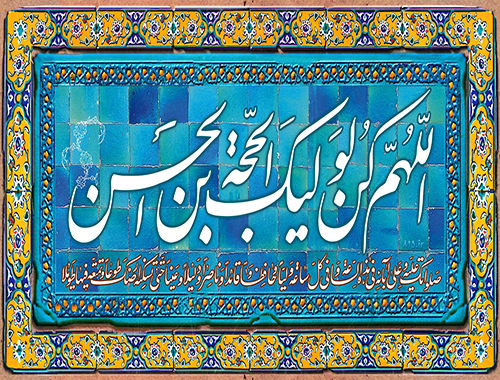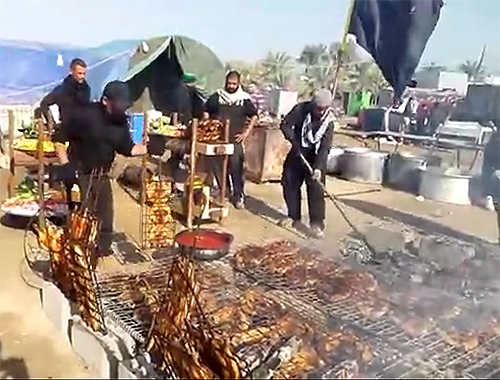Criticising and Exposing a Believer
- Details
- Hits: 1968
Criticising and Exposing a Believer
Imam Baqir (a.s.) and Imam Sadiq (a.s.) have said,
“The deed that brings one very close to infidelity is that a person considers someone his brother in faith but he keeps track of his defects and misdeeds so that one day he can use them to criticise the believer.”
(al-KÄfi Vol. 2 page 354)
The Messenger of Allah (S) says,
“O those people! Who have accepted Islam (become Muslims) by tongue but sincere belief (ImÄn) has not entered your hearts. Do not criticise the Muslims and do not search for their faults, because Allah will search for the faults of those who search for defects in the believers. And whoever’s faults He searches, will be degraded by Him, even if he had committed the bad deed in his house.”
Imam Ja’far as-Sadiq (a.s.) remarked,
“Allah will denounce and degrade one who denounces and degrades a believer.”
(al-KÄfi Vol. 2 page 356)
The Messenger of Allah (S) says,
“One who exposes an indecency is like the one who has committed it and one who curses and criticises a believer for a bad deed will himself fall into the same sin before he leaves this world.”
(al-KÄfi Vol. 2 page 356)
It should be clear that prohibition on criticism and Nahy Anil Munkar are not contradictory. Nahy Anil Munkar is constructive criticism which is actually good advice given to a believer in faith, out of concern for him, and in order to help him get rid of his bad traits. Whereas malicious criticism only serves to degrade and expose the believer.
Imam Ja’far as-Sadiq (a.s.) says,
“One who relates something about a believer to expose his defects and insults him so that he falls in the estimation of people will be deprived of Allah’s friendship and guardianship. Allah will push him under the guardianship of Shaitan but Shaitan will also refuse to accept him.”
(al-KÄfi Vol. 2 page 359)
Commenting on this tradition Allamah Majlisi (r.a.) says that it may be relating an incident which proves the lack of intelligence or weakness of judgement of the believer, or Shaitan’s refusal to accept him, means that Shaitan is no longer interested in this person. Shaitan’s aim is to deviate the people, so that they lose the guardianship (love and friendship) of Allah (S.w.T.). Since this purpose is already accomplished, Shaitan has no further interest.
Muhammad Ibn Fuzail says that he asked Imam MÅ«sa Ibn Ja’far (a.s.), “May I be sacrificed for you, I hear a thing about my believing brother that is unpleasant. After this I ask my brother that I heard such and such thing regarding him, if it was true, and he denies it. Whereas a very reliable person had informed me about it?”
Imam (a.s.) said,
“Belie your eyes and your ears with regard to your brother, that is ignore it by saying: My eyes and ears have fooled me, even if fifty people report something about your brother and he denies it. You must accept his veracity and belie them. That is, say, ‘They may be mistaken’, and do not say anything that will expose his defects and degrade him. Because if you do so, you shall be included among the people about whom the Qur’an says: “Those who like scandal to spread among the believers. There is severe chastisement for them in the world and the Hereafter.”
(Wasa’il ul-Shia Vol. 7 page 609)
The Messenger of Allah (S) said,
“One who moves out to expose the defects of his brother has taken the first step towards Hell. And Allah will expose his hidden defects on the day of QiyÄma.”
(Wasa’il ul-Shia Vol. 7. page 602)
Imam Ja’far as-Sadiq (a.s.) says,
“Allah will keep in a place of Hell where there is blood and puss a person who relates an anecdote regarding his believing brother which exposes his faults and degrades him.”
(It is the place in Hell where blood and puss from the organs of fornication collect.)
(Mustadrak ul-Wasa’il)
Imam Sadiq (a.s.) says,
“If one is aware of a sinful act of a believer and instead of concealing it, he reveals it to the people and does not pray for the believer’s forgiveness, he shall be in the view of Allah same as one who has himself committed that sin and is eligible for its punishment. The actual sinner will receive salvation because the worldly degradation was enough as an expiation of his sin and he will not suffer humiliation in the hereafter because Allah is very kind, He does not punish twice for the same sin, and neither can he humiliate someone twice.”
(Mustadrak ul-Wasa’il)
In effect the punishment of the hereafter will be transferred to the account of those who expose this evil act. Many more traditions are quoted in this connection but the above mentioned should suffice.

![take advantage of your [present] time](/en/media/com_hwdmediashare/files/99/f5/fb/5293162f4d04afb1ed8da3034e984340.jpg)









